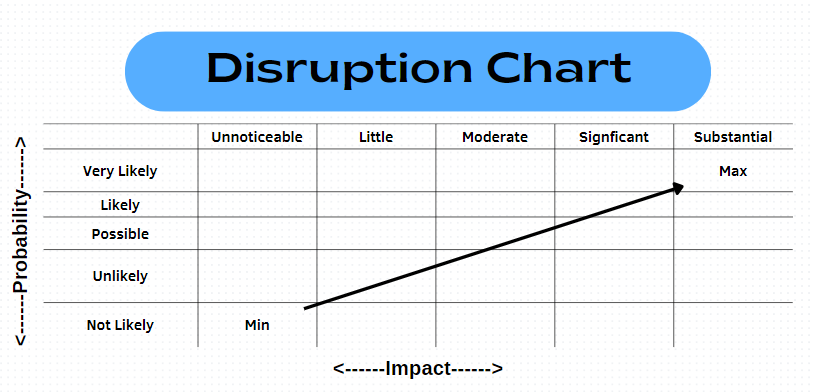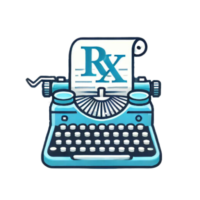Introduction
In the ever-evolving field of pharmacy, making informed career decisions is crucial for long-term success and professional satisfaction. With a plethora of opportunities available, it’s essential to identify positions that not only offer growth but also align with ethical standards and legal regulations. This article aims to shed light on high-risk pharmacy positions that may pose threats to your career and reputation, and to suggest safer, more rewarding alternatives.
I. Defining High-Risk Positions
Legal and Ethical Risks
High-risk pharmacy positions are roles that expose pharmacists to potential legal liabilities and ethical dilemmas. These jobs may involve working in environments where regulations are lax, compliance is questionable, or practices skirt the boundaries of legality. Engaging in such positions can lead to disciplinary actions, loss of licensure, or even criminal charges.
Financial Instability
Positions in declining sectors or organizations with unstable financial footing also pose risks. These roles may offer limited career advancement, reduced job security, and the potential for sudden unemployment due to business closures or downsizing.
Additional Considerations
Below is a disruption chart that signifies how one might categorize or label an impending change in the market.

Keeping tabs on the latest changes, whether at the policy, sentiment, technology or compliance level, will help you insulate against risks. What are some ways to optimize my workflow? Contextually, is your work maximally or minimally disruptive? Or is there an unknown that isn’t being accounted for which might change a perspective? The middle portion of the chart is the gray area where preparedness and strategic problem-solving approaches will generate the most value.
II. Examples of High-Risk Roles
1. Illegitimate Online Pharmacies
The rise of internet commerce has led to the proliferation of online pharmacies. While many operate legitimately, a significant number function outside regulatory frameworks.
- Issues with Counterfeit Drugs: Illegitimate online pharmacies often dispense medications without proper verification, leading to the distribution of counterfeit or substandard drugs. This not only endangers patient health but also implicates pharmacists in illegal activities.
- Lack of Proper Accreditation: These pharmacies may not be accredited by recognized bodies like the National Association of Boards of Pharmacy (NABP), indicating non-compliance with essential standards.
2. Unscrupulous Compounding Facilities
Compounding pharmacies create personalized medications for patients. However, not all compounding facilities adhere to strict guidelines.
- Non-Compliance with Regulations: Some facilities bypass the United States Pharmacopeia (USP) standards for compounding, increasing risks of contamination and product instability.
- Involvement in Illegal Manufacturing: Engaging in large-scale production of compounded medications without proper approval can lead to severe legal consequences.
3. “Pill Mill” Operations
These are clinics or pharmacies that prescribe and dispense controlled substances inappropriately.
- Contributing to Substance Abuse: Working in such settings may involve dispensing opioids or other controlled drugs without legitimate medical purposes.
- Legal Repercussions: Authorities are cracking down on pill mills due to the opioid epidemic, and pharmacists involved may face criminal charges.
4. Underregulated Supplement Stores
Some positions involve selling nutritional supplements and alternative medicines that lack FDA approval.
- Misleading Claims: Promoting products with unverified health claims can damage credibility.
- Risk of Harm to Patients: Distributing products that interact negatively with medications or have harmful side effects poses ethical concerns.
III. Assessing Potential Employers
Due Diligence
Before accepting a position, it’s imperative to thoroughly research the prospective employer.
- Company History and Reputation: Look for reviews, news articles, and professional experiences shared by former employees.
- Financial Stability: Analyze the company’s financial health through public records or financial statements if available.
Regulatory Compliance
Ensure the organization operates within legal boundaries.
- Licenses and Certifications: Verify that the pharmacy holds all necessary state and federal licenses.
- Accreditations: Check for accreditations from bodies like the NABP or Pharmacy Compounding Accreditation Board (PCAB).
Red Flags to Watch For
- High Employee Turnover: May indicate an unstable or unsatisfactory work environment.
- Pressure to Cut Corners: Employers encouraging you to overlook regulations or ethical standards are high-risk.
- Lack of Transparency: Difficulty obtaining information about the company’s practices or policies is a warning sign.
IV. Protecting Your Career
Professional Liability Insurance
Investing in professional liability insurance is a prudent step.
- Importance and Coverage: This insurance protects you against claims of negligence or malpractice, covering legal fees and damages.
- Peace of Mind: Even in low-risk environments, unforeseen incidents can occur. Insurance offers financial security.
Ethical Practice
Upholding the highest ethical standards minimizes risks.
- Adherence to Laws and Regulations: Stay informed about state and federal pharmacy laws.
- Continuing Education: Regularly update your knowledge through accredited programs to remain compliant with best practices.
- Patient Advocacy: Prioritize patient safety and well-being in all professional decisions.
V. Alternative Pathways
Growing Fields
Several pharmacy sectors are expanding and offer robust career prospects.
- Clinical Pharmacy: Involvement in direct patient care within hospitals or clinics, focusing on optimizing medication therapy.
- Informatics: Combining pharmacy with information technology to improve medication management systems and patient outcomes.
- Managed Care: Working with insurance companies or healthcare organizations to develop formularies, conduct drug utilization reviews, and manage medication therapy programs.
Skill Enhancement
Pursuing additional training and education can open new doors.
- Residency Programs: Completing a pharmacy residency provides specialized experience and enhances employability. Resources like the ASHP’s pharmacy residency programs list can help you find suitable opportunities.
- Certifications: Obtaining certifications in areas like oncology, geriatrics, or pharmacotherapy can differentiate you in the job market.
- Networking: Engage with professional organizations and attend conferences to build connections and stay informed about emerging opportunities.
Conclusion
Proactive Planning
Your career trajectory is largely determined by the choices you make today. By avoiding high-risk positions and actively seeking roles that offer growth and stability, you set the foundation for a fulfilling professional life.
- Self-Assessment: Reflect on your career goals and values to identify positions that align with them.
- Stay Informed: Keep abreast of industry trends, regulatory changes, and market demands.
Resources
- Professional Associations: Organizations like the American Pharmacists Association (APhA) and the American Society of Health-System Pharmacists (ASHP) offer career resources and guidance.
- Mentorship Programs: Seek mentors who can provide insights and advice based on their experiences.
- Career Services: Utilize services offered by pharmacy schools or professional networks to explore opportunities and receive feedback on your career plans.
Empowering Your Future
Navigating the pharmacy profession requires diligence, ethics, and a commitment to continuous growth. By steering clear of high-risk positions and investing in your professional development, you not only protect your reputation but also contribute positively to the healthcare industry.
Remember, your career is more than a job—it’s a reflection of your dedication to improving patient lives and advancing the field of pharmacy. Make choices that honor that commitment, and you’ll find both personal and professional fulfillment.







